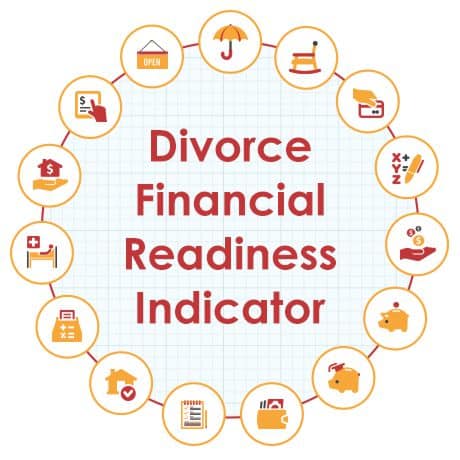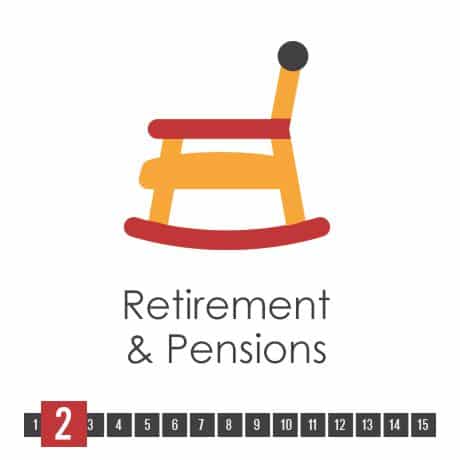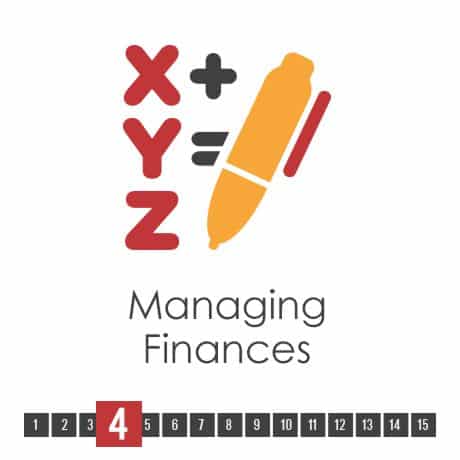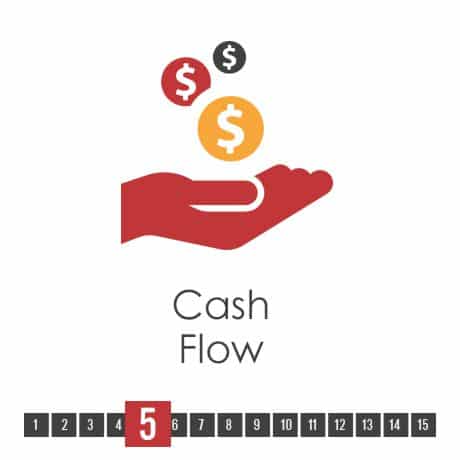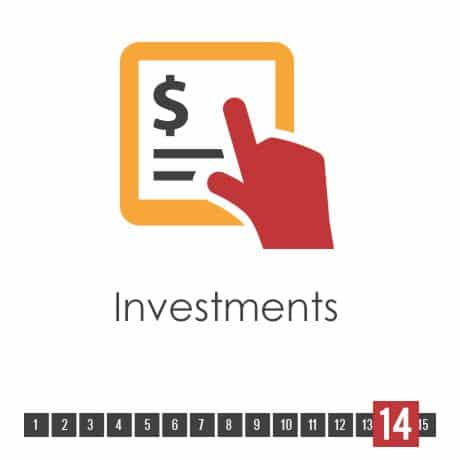Divorce Financial Planning – Secure Your Future Smartly

Divorce is a challenging and emotionally charged experience with significant financial implications for both spouses. In this turmoil, it is crucial to approach the divorce financial planning process with clarity and objectivity. Unfortunately, common misconceptions can hinder effective financial decision-making during this difficult time. This article will debunk these misconceptions and shed light on the truth behind divorce financial planning.
What is the role of a financial advisor in a divorce?
A financial advisor plays a vital role in a divorce by providing objective advice and helping individuals make informed financial decisions. They can help identify and value assets, assess financial needs, and develop a comprehensive plan to divide property and assets equitably.
Divorce can be complex and emotionally challenging, and having a financial advisor by your side can provide stability and guidance. They can help you understand the financial implications of your decisions and ensure you are making choices that align with your long-term goals.
One of the key responsibilities of a financial advisor in a divorce is to help individuals identify and value their assets. This can include everything from real estate properties and investment portfolios to retirement accounts and valuable possessions. By thoroughly analyzing estate documents, the financial advisor can help ensure all assets are accounted for and properly valued.
Once the assets have been identified and valued, the financial advisor can help assess both parties’ financial needs. This involves analyzing income, expenses, and future financial obligations such as child or spousal support. By understanding the financial picture of each individual, the advisor can help develop a plan that ensures both parties can meet their financial needs post-divorce.
Dividing property and assets equitably is another crucial part of the financial advisor’s role. They can work closely with lawyers and other professionals to help negotiate a fair and equitable distribution of assets. This may involve considering tax implications, future financial needs, and the long-term financial well-being of both parties.
A Certified Divorce Financial Analyst can provide guidance on budgeting, managing cash flow, and focusing on financial goals, helping individuals navigate the transition from a shared economic life to managing their finances independently. They can help create a realistic budget that considers new expenses and changes in income. Individuals can confidently move forward and plan for their future by establishing a solid financial foundation.
In addition to their technical knowledge, many financial planners and advisors can also provide emotional support during the divorce process. They understand the stress and uncertainty of a major life change like divorce and can offer a listening ear and compassionate guidance. Having someone who understands your financial situation and can provide objective advice can be invaluable during this challenging time.
A financial advisor plays a crucial role in a divorce by providing objective advice, helping in asset valuation, assessing financial needs, and developing a comprehensive plan for dividing property and other assets more equitably. They can also guide budgeting and managing finances independently and offer emotional support. By working with a financial advisor, individuals can navigate the complex financial parts of divorce with confidence and clarity.
Debunking the divorce financial planning misconceptions
Factor 1: About – Numbers vs. Life
Misconception: Many people mistakenly believe that for divorce lawyers, financial planning is only about crunching numbers and dividing assets.
Truth: In reality, divorce financial planning encompasses much more than numbers. It involves understanding the impact of divorce on various parts of life, such as housing, income, retirement, and even emotional well-being. By considering the broader implications, individuals can develop a comprehensive plan that addresses immediate and long-term financial goals.
Factor 2: For – Individual Spouse vs. Both Spouses
Misconception: Divorce financial planning is often perceived as only benefiting the individual spouse seeking the plan.
Truth: Effective divorce financial planning considers the economic well-being of both spouses. It seeks to find equitable and cost- solutions that meet the needs and goals of each party. By working together and focusing on mutual interests, both spouses can achieve a more stable financial future.
Factor 3: Plan – Document vs. Road Map
Misconception: Some believe that divorce financial planning is simply about generating a legal document.
Truth: Divorce financial planning goes beyond documentation. It serves as a road map for navigating the complexities of financial decisions during and after divorce. It involves evaluating financial assets, debts, income sources, and expenses and creating a strategic plan outlining steps for a secure financial future.
Factor 4: Basis – Formulas vs. Options, Customized Plan
Misconception: Many assume that divorce financial planning relies only on generic formulas or predetermined calculations.
Truth: In reality, divorce financial planning offers a range of options and opportunities for customization. Every divorce is unique, and financial planning must account for individual circumstances. By considering personalized factors such as career paths, lifestyle choices, and future goals, a customized plan can be developed that better aligns with the specific needs of each ex-spouse together.
Factor 5: Wow Factor – Winner Take All vs. Financial Freedom
Misconception: Divorce financial planning is often associated with a “winner take all” mentality in separation, where one spouse gains everything.
Truth: The true goal of divorce financial planning is to achieve financial freedom for both parties. It aims to ensure a fair and equitable distribution of assets and liabilities, letting each spouse build a solid financial foundation and confidently move forward.
Factor 6: Who – Wealthy vs. Everyone
Misconception: Divorce financial planning is incorrectly believed to be a concern exclusively for rich individuals.
Truth: Divorce financial planning relates to people from all walks of life. Whether you have substantial assets or more modest means, proper financial planning is crucial to safeguarding your financial future. By seeking professional guidance, individuals of all income levels can benefit from expert advice tailored to their circumstances.
Factor 7: Focus – Having it All vs. Security and Peace of Mind
Misconception: Many individuals approach divorce financial planning to ” have it all” or seek revenge on their former spouse.
Truth: The primary focus of divorce financial planning should be on achieving security and peace of mind. By making sound financial decisions and focusing on stability, individuals can lay the groundwork for a brighter future and reduce potential conflicts.
What is a Certified Divorce Financial Analyst?
A Certified Divorce Financial Analyst (CDFA) specializes in divorce’s financial parts. They have extensive training and knowledge in tax implications, property division, and spousal and child support. A CDFA can provide valuable insights and analysis to help individuals make informed decisions about their financial future during and after a divorce.
Divorce is a complex and emotionally challenging process with significant financial implications. It involves the division of assets, determination of support payments, and consideration of tax consequences. This is where a CDFA comes in. With their knowledge, they can guide individuals through the financial intricacies of a divorce settlement, ensuring their interests are protected.
One of the key areas in which a CDFA can help is analyzing the financial impact of different asset division scenarios. Dividing assets in a divorce can be a contentious issue, and it is important to understand the potential long-term economic consequences clearly. A CDFA can help individuals evaluate the value and growth potential of different assets, such as real estate, investments, and retirement accounts, to ensure a fair and equitable division.
A CDFA can provide valuable insights into the tax implications of various financial decisions made during a divorce. They can help individuals understand the tax consequences of selling or transferring assets and the potential tax implications of spousal and child support payments. Considering these factors, individuals can make informed decisions that reduce their tax burden and maximize their financial well-being.
In addition to asset division and tax considerations, a CDFA can guide spousal and child support payments. They can help calculate the proper amount of spousal support based on income, expenses, and the individual’s needs. This ensures the financial needs of both parties and children are met fairly and sustainably.
Another important role of a CDFA is to help individuals plan their financial future post-divorce. They can help develop a budget, set financial goals, and create a long-term financial plan considering the individual’s new financial circumstances. This can include strategies for rebuilding savings, managing debt, and planning retirement.
Overall, a Certified Divorce Financial Analyst plays a crucial role in helping individuals navigate the financial complexities of divorce. Their knowledge and guidance can provide peace of mind and make sure individuals make informed decisions that set them up for a secure financial future. Whether it’s analyzing assets, considering tax implications, determining support payments, or planning for the future, a CDFA is an invaluable resource during the divorce process.
Protecting Your Financial Interests in Divorce
Divorce can have significant financial implications, and it is crucial to protect your interests during the process. One important step is gathering all relevant financial documents, including bank statements, tax returns, and investment statements. This information will help assess family assets and debts and help in negotiations and fair settlement.
Knowledge is power when protecting your financial interests in a serious divorce proceeding. Collecting and organizing all your financial documents can give you a comprehensive understanding of your financial situation. Bank statements will reveal your income, expenses, and any joint accounts you and your spouse share. Tax returns will provide insight into your earning potential and potential tax liabilities. Investment statements will give you an overview of your assets and any potential growth or loss.
However, gathering the documents is the first step. To protect your financial interests, it is crucial to consult with a financial advisor who specializes in divorce settlements. These professionals know how to analyze your financial situation and guide you on the best course of action.
Discussing short-term and long-term financial implications is essential when consulting with a financial advisor. Short-term considerations may include immediate cash flow needs, such as spousal or child support, and the division of assets and debts. Long-term concerns may involve retirement savings, post-secondary education funds for children, and potential tax consequences.
A financial advisor can help you understand the potential tax implications of different settlement options. For example, if you keep the family home, they can advise you on the tax consequences of selling the property. They can also help you evaluate the impact of dividing money between retirement accounts and the potential tax liabilities of early withdrawals.
In addition to tax considerations, a financial advisor can help you assess your future cash flow. They can analyze your income, expenses, and potential sources of income to make sure you are making informed decisions that align with your financial goals. By understanding your financial situation, you can negotiate a settlement that provides you with the financial security you need.
Divorce is complex; protecting your financial interests requires careful planning and expert advice. By gathering all relevant financial documents and consulting with a financial advisor, you can confidently navigate the divorce process and ensure your financial future remains secure.
Top financial concerns in a divorce and how to plan for them
Divorce brings about several financial concerns that require careful planning. One primary concern is the division of assets, including the family home, investments, and retirement accounts. A financial advisor can help determine the best strategies for dividing assets fairly and preserving long-term financial stability.
Another significant concern is the impact of divorce on income and cash flow. With the separation of finances, it becomes crucial to create a realistic budget that considers living expenses, child support or alimony payments, taxes and potential changes in income. A financial advisor can help develop a sustainable financial plan addressing these concerns.
Planning for Your Post-Divorce Financial Future
After a divorce, it is essential to secure your financial future. This might involve reviewing and updating important financial documents such as wills, insurance policies, and retirement account beneficiaries. A financial advisor can also help evaluate and adjust your investment portfolio to align with your changed financial circumstances and goals.
Creating a new financial plan that reflects your individual goals and circumstances is crucial. This may involve focusing on savings, investing for retirement, and establishing an emergency fund. A financial advisor can provide guidance and support in developing a comprehensive plan that ensures your long-term financial security.
Protecting Your Credit During Divorce
Divorce can substantially impact your credit, especially if joint accounts are not managed properly. Closing joint accounts and establishing individual credit in your name is essential to protect your credit. Additionally, regularly tracking your credit report can help detect any unauthorized activity or errors and address them promptly.
A financial advisor can help navigate these credit-related challenges, providing strategies to rebuild credit and establish a solid financial foundation post-divorce
Financial Planning For A Divorce
Financial planning is crucial before, during, and after a divorce. Understanding your financial situation and working with a trusted financial planner or advisor can significantly affect the overall outcome of the divorce process. By proactively managing your finances, protecting your assets, and planning for the future, you can lay the groundwork for a secure and successful post-divorce financial life.
Conclusion
Navigating the complexities of a divorce settlement can be a daunting task. Issues such as spousal support, the division of investments, and the handling of taxes can lead to confusion and increased cost. It’s especially challenging when one spouse has been more involved in managing the money during the marriage.
As a Certified Divorce Financial Analyst (CDFA), I am here to help you and your ex-spouse navigate these financial complexities. My goal is to create separation agreements with clarity, ensuring a secure future for both parties.
Don’t let the overwhelming conflicts, confusion, and costs created by legal proceedings cloud your judgment. Instead, let’s work together to make this process as smooth as possible.
Schedule a Get Acquainted Call today. Let’s discuss your situation and explore how we can make your divorce the smart way. Remember, a well-planned divorce settlement can lead to a soft landing and a secure future. Tap Here to Schedule a Get Acquainted Call
Articles that may interest You!
Master Your Divorce: Improve Your Financial Readiness with the DFRI Online Assessment
Your DFRI, or Divorce Financial Readiness Indicator, is a crucial measurement of how effectively you can navigate your financial landscape during a separation or divorce.
It evaluates your proficiency in vital areas like
- Life Insurance
- Retirement and Pensions
- Credit Cards
- Savings
- Cash Flow Management
- Post-secondary Expenses for Children
- Separate Property
- Family Property
- Mortgages
- Tax Returns
- Disaster Preparedness
- Matrimonial homes
- Investments
- Business-related aspects
The savvy ones who truly know their money tend to make smarter financial decisions in these trying times.
Here’s the remarkable aspect of DFRI: unlike IQ, which relies heavily on the genetic lottery, financial intelligence is a skill that can be acquired. The best part? It’s far from rocket science, especially when a solid Divorce Survival Plan is in action.
These 15 areas are fundamental to achieving a fair settlement, that you must equip yourself with knowledge and preparation before any negotiation attempts.
I feel so passionately about this that I devised a unique self-assessment process called the Divorce Financial Readiness Indicator. It consists of a preliminary interview followed by detailed feedback, and my clients find it incredibly beneficial.
Here’s how it works:
You’ll respond to 15 multiple-choice questions via an online platform. Based on your responses, I’ll provide written feedback for each question and an action plan to address each area.
I’m thrilled to extend this transformative service to you online.
Please try it out and undergo the online DFRI assessment. I’ll eagerly await your completed review.
And remember – schedule your complimentary follow-up call after you finish the DFRI. Let’s take this crucial step together on your journey to financial readiness.
Ken Maynard CDFA, Acc.FM
I assist intelligent and successful couples in navigating the Divorce Industrial Complex by crafting rapid, custom separation agreements that pave the way for a smooth transition towards a secure future. This efficient process is achieved in about four meetings, effectively sidestepping the excessive conflicts, confusion, and costs commonly linked to legal proceedings. Clients have the flexibility to collaborate with me either via video conference or in-person through a DTSW associate at any of our six Greater Toronto mediation centers, located in Aurora, Barrie, North York, Vaughan, Mississauga, and Scarborough.


